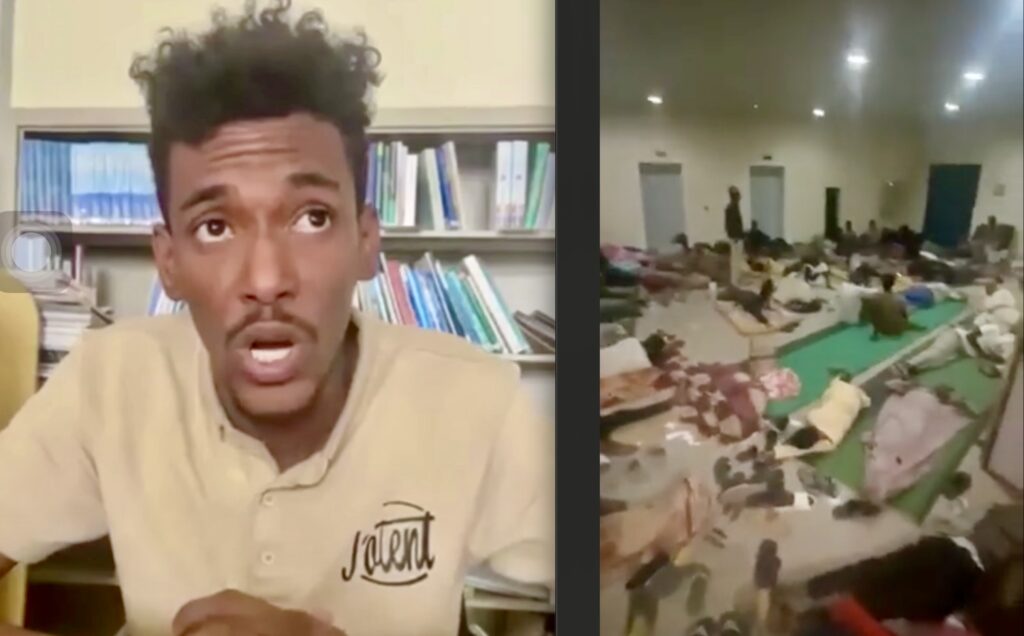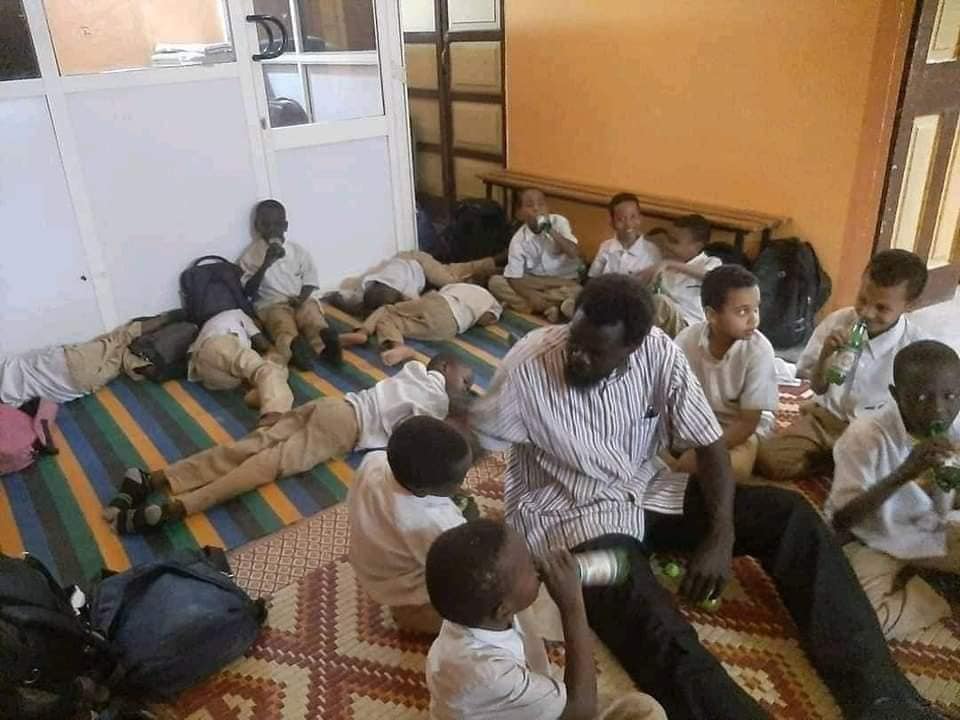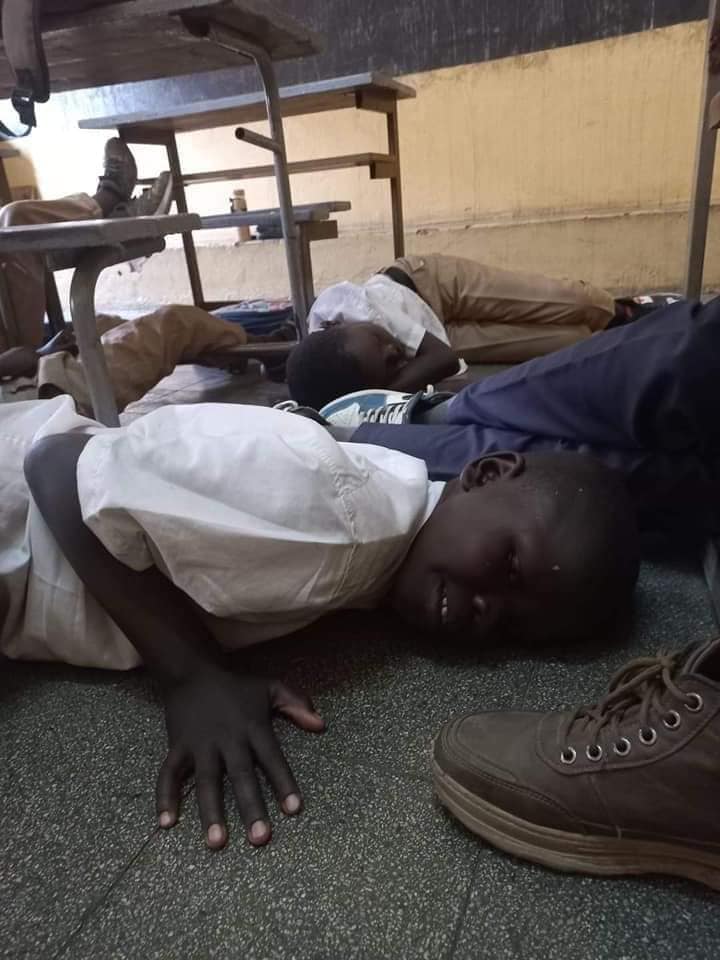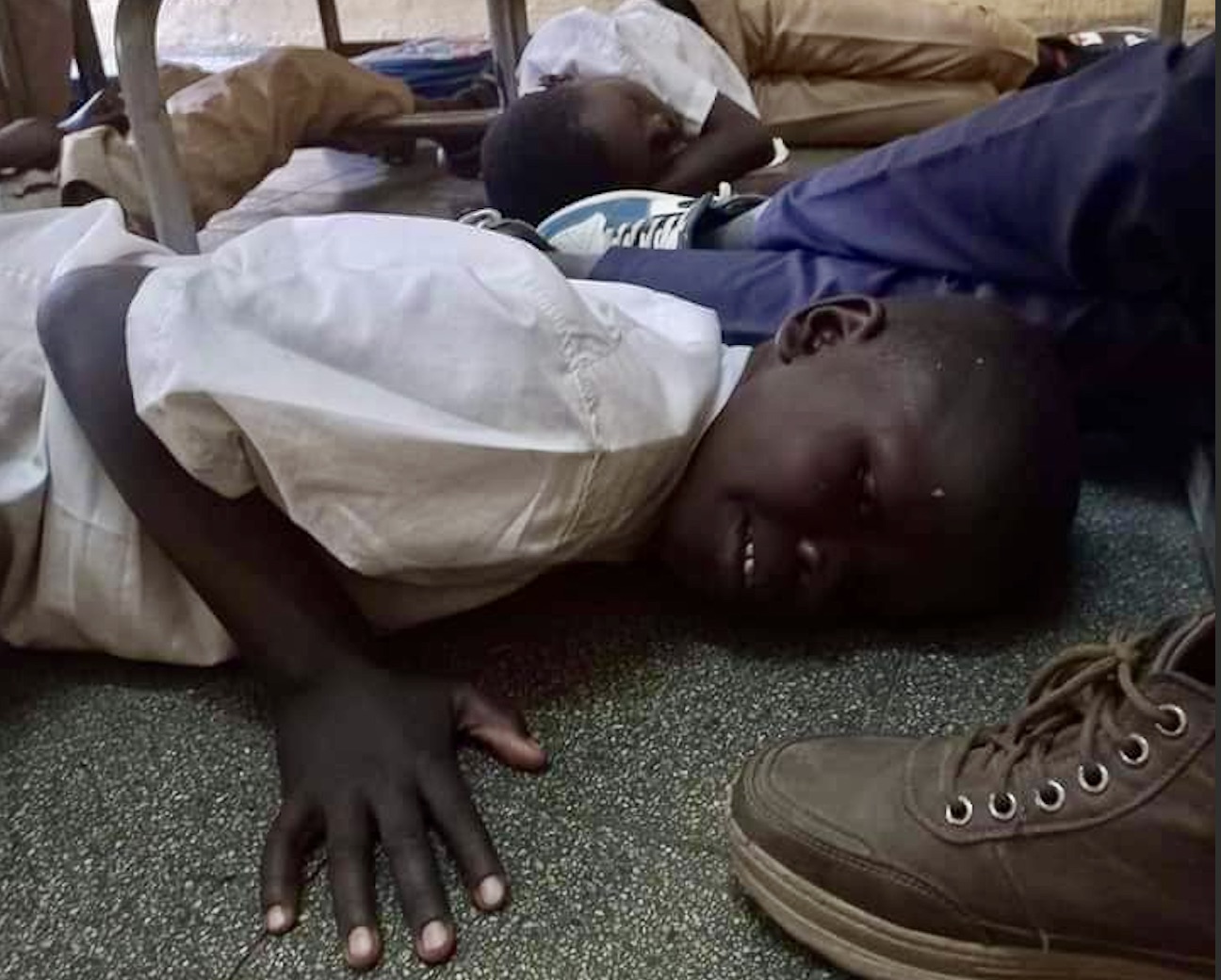Trapped under gunfire, the plight of Khartoum’s students
20 April 2023
As the conflict between security forces in Sudan continues, many civilians –including students, remain trapped, unable to leave their educational institutions with limited access to life’s basic necessities. The deadly confrontation between Sudan’s Armed Forces and the paramilitary Rapid Support Forces deepens the humanitarian crisis in Sudan as civilians find themselves caught in the crossfire between the two forces in the capital, Khartoum, and at least eight other cities.
More than 270 people have been killed and over 2,000 injured according to the World Health Organization, but the actual numbers are thought to be far greater since many deaths are left unrecorded, according to the Sudanese Doctors’ Union.

Trapped under Gunfire
For over five days, students at the University of Khartoum – which is located close to the General Command of the Armed Forces – have been trapped inside campus buildings along with some of the university employees, “We are 88, there are 20 employees and some of them are elderly, our situation is very bad, yesterday a student was killed and we have another one seriously injured –we do not have food and are afraid of the possibility of a power blackout,” says University student Hashim Ali.* Without means to retrieve the body, the student was buried inside the campus on Monday.
Also, 40 students remain stranded at the language college – American Discussion Club –all have no access to food or supplies, they say, asking for help in a clip circulating via social media. The campus location is reported to be less than 2 km from the presidential palace where fierce shelling has taken place as each side attempts to secure control.

Comboni College and School
Last Saturday, when the confrontations began, young students of Comboni College and School in downtown Khartoum found themselves in a similar situation as the fighting started shortly after they arrived at school. Children of various ages spent more than 24 hours inside the campus caught under gunfire and bombardment.
Among the students was 17 years old Kon Michar, who had to stay in the school for over 24 hours. His father, Miakuei Michar told Ayin about the horrifying experience he and his wife went through. The students went to school Saturday morning around 6-7 am –like many Khartoum residents who were caught completely unaware of the quickly unfolding conflict in the city’s central areas. At 8 am, the pupils were taking an exam, and about an hour later, the disaster hit.
“My son called me around 9:10 am and told me that they were hearing sounds of nearby heavy gunfire in the al-Souq al-Arabi (Arab Market) area, I told him not to leave school as we did not understand what was happening. The Comboni school is in Khartoum, and our home is far away in Khartoum North, in Haj Yousif. We thought then it was a brief conflict, and it will soon clear, allowing students to go home,” Michar said.
All the students were trapped inside the school, and children as small as first graders were unable to go home, Michar explained, saying that with no way for him to reach the school due to the random gunfire and lack of transportation. Unable to help but desperately worried, all he could do was remain in contact with his son, a relative of his who also attended Comboni College, and the school’s administration via a teacher there who assured him that they were doing their best to keep the children safe.
“I kept calling my son every 30 minutes to check on their situation, they only had water and remained without food for hours. My young relative with him told me that the gunfire was very close, and they started to hear artillery and shelling sounds; they were expecting death any moment and were very scared, we felt helpless and extremely worried”, he said.
The students did not eat until the night when a small amount of food was brought to school for some of the small children, as many of them had passed out at this point and others were in a poor condition due to the pervasive fear and hunger. All the students had to spend the night inside the school, sleeping on the ground, expecting the school to get bombed at any moment.
In the morning, exhausted of alternative options, students started to leave schools on foot, traveling in small groups as shooting went on around them. “My son, our relative, some of his colleagues, and some teachers were caught in the crossfire many times – as they tried to come home, they would stop, take shelter inside the buildings in their path, then resume their journey. At some point they were almost hit by a shell that fell very close to their way,” Michar said. Lacking access to local transport, Michar walked for seven hours, crossing the restive bridge Manashia and finally coming home in the evening.
There are no confirmed injuries among the students of Comboni School so far, except for one student that went out of the main building to drink water on the other side of the campus. A stray bullet hit him, causing a superficial cut wound on the left side of his back; first aid measures were taken to care for him inside the school, and his condition was stable until the building was evacuated.
While Michar was able to get back to his family after the hardship he and his fellow students went through, some of them could not go home and teachers had to take many of them to their homes while others went to those of fellow classmates.

Teggy is one of those children that could not go back home since Saturday, his sister Hiba, who had to flee her home as well, is waiting to be reunited with her siblings, she told Ayin. According to Hiba, her young brother is in a state of shock from the sight of corpses and lots of armed soldiers he saw on the streets during his journey to one of his classmate’s homes. He is only nine years old.
“The children spent the whole day Saturday without food or water, and only had food brought Sunday morning from a nearby church that had food preprepared for prayers before the escalation of the situation, they had to start walking at around 10 am from Khartoum all the way to Omdurman as it was not possible to get to their house in Khartoum North”, she said, adding that her brother was not speaking for hours because of the horrors he went through.
She is still to meet her younger brother, as she herself had to flee the family’s home heading to her aunt’s house, hoping that her other siblings and relatives can be brought there soon. “Teggy, who spent his whole life in Khartoum, now keeps asking us when we will go back to South Sudan –after everything, he went through and saw since Saturday.” Comboni College and School is a Christian-based institution that has routinely catered to different demographics in Sudan, including many pupils from South Sudan.
Empty Classrooms
As the violence continues, educational institutions pay the price as well as students. On Monday, the offices of the Ministry of Higher Education and Scientific Research were burnt, leading to the loss of important data and information related to all Sudanese universities, including enrollments. Several employees who were trapped in the building since the beginning of the clashes were evacuated with no reported casualties.
“We pray for the students and teachers trapped in a conflict they have no part in,” says teacher Saleh Hamad who formerly worked in a school in West Darfur. “We also fear for the future generations – pupil attendance rates were already low before this conflict – now no one can possibly learn in this environment.” Even prior to this conflict, in late 2022, the UN and Save the Children said that nearly a third (7 million) of Sudan’s children between 6 – 18 are not in school.


